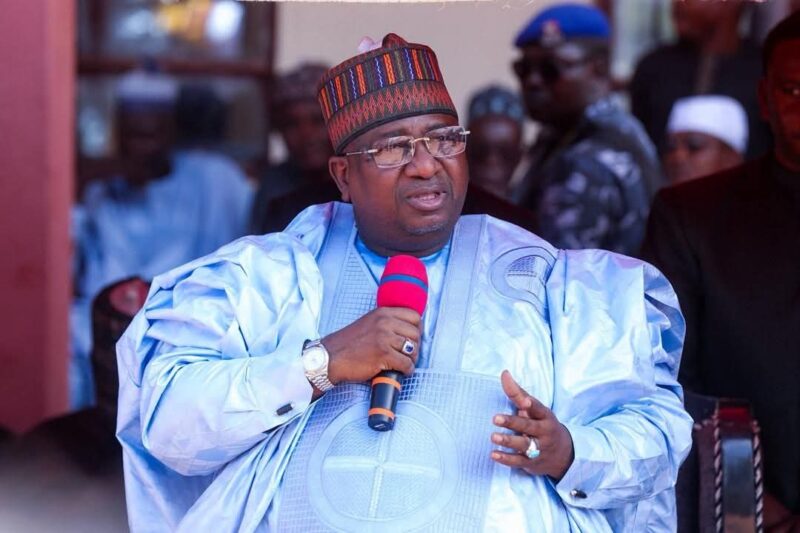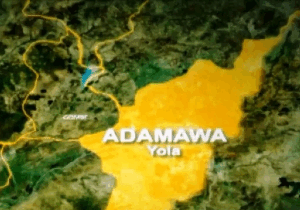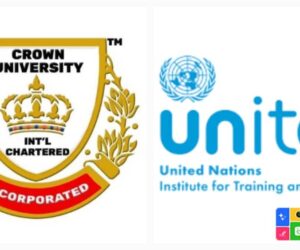

There are moments when leadership is not tested by speeches, promises, or political finesse, but by presence, courage, and clarity of action. Kebbi state recently witnessed one of its defining moments when 25 school girls were abducted from Government Day Secondary School, Maga, in Danko-Wasagu local government area of the state. And in that moment of collective panic, Governor Nasir Idris showed what it means to respond not later, not by proxy, not through press statements, but swiftly and decisively.
What was witnessed in Kebbi state went beyond the rescue of young girls. It is about the character of leadership on display, the tone of governance we saw, and the unity of purpose that emerged across the state. Amidst fear, anger, and uncertainty, the people of Kebbi state witnessed a rare demonstration of responsive leadership that deserves to be highlighted.
The news of the abduction broke like wildfire. Fear swept through the state, especially across the Wasagu–Zuru belt where banditry has become a troubling menace. Before critics or commentators could even form an opinion, Governor Nasir Idris was already airborne, cutting short all engagements to return to Kebbi.
That swift return was not symbolic, it was necessary. In times of crisis, the physical presence of a leader restores confidence. It calms frayed nerves. It reminds the people that they are not abandoned to the mercy of criminals. And the people of Kebbi saw this first-hand when the governor went immediately to ground zero.
Governor Idris didn’t issue instructions from afar. He came home to face the challenge, shoulder-to-shoulder with the security agencies and the families of the abducted girls. That singular act set the tone for everything else that followed.
A defining moment was when Governor Idris made a candid revelation that intelligence had been received before the attack, and that the military unit, stationed in the school even posed for pictures with the students, had withdrawn moments before the bandits struck.
The governor was intentional in not sweeping this damaging reality under the rug. He refused to hide behind bureaucracy, calling it what it is: an act that raises serious questions, possibly hinting at sabotage.
This was a bold move, because not many political leaders are comfortable admitting that there may be cracks; sometimes dangerous cracks, within the security architecture. But he chose transparency over convenience.
What this did was simple: it reassured the people that the governor was not treating the deaths, kidnappings, and fears of rural communities as mere statistics. He was confronting the hard truth openly. That, in itself, is leadership. Unknown to the governor, that singular act bought him solidarity from across the nation.
Another part of the story that resonates deeply is how the governor took personal charge of coordinating the rescue mission. He refused to delegate the most important aspect of his job as a leader. It was not “I have directed the security agencies” as we often hear in Nigeria’s politics. It was all-hands-on-deck operation and the people of Kebbi love him for it.
The governor stationed himself at the heart of the operation, working closely with the Army, Police, DSS, community guards, and local intelligence units. He received real-time updates. He asked questions. He pushed for results.
Alongside that, he was in constant contact with the parents of the kidnapped girls, calling them, meeting them, reassuring them.
His message was simple: “Your children; my children will not be forgotten. Government is fully involved. And we will not rest until they are home.”
That level of communication is something victims’ families rarely experience. But Governor Idris understood that in a moment like this, information is oxygen. Silence breeds fear and desperation. So, he kept the lines open. He’s, after all, a teacher and when someone threatened his immediate professional constituency, he was not going to take it lying down.
Perhaps the most profound even very impressive outcomes of the Maga abduction incident was the unity that emerged across Kebbi state. For once, politics took a backseat. In its place was solidarity.
Opposition politicians, civil society groups, community leaders, youth organisations, and traditional authorities all rallied behind the governor. They set aside party colours. They set aside rivalries. The message was clear: “These are our daughters. Their safety is above politics.”
And it was Governor Idris who created the atmosphere that made such unity possible with his frank admissions from the off. He warned against the politicisation of the incident, while maintaining transparency; involving everyone who had a role to play. This reminded the people of Kebbi that security is not an APC or PDP issue; it is a collective issue, it is about the safety of human beings, of children.
I dare say the governor’s ability to rally an entire state for a single cause is one reason the rescue was executed with so much speed and precision.
Not many Nigerian leaders have the courage to say, “We need to do better.” But Governor Idris did exactly that, openly admitting after the rescue of the 25 girls, that the Wasagu–Zuru axis has become increasingly vulnerable and requires urgent strengthening. That honesty matters.
It shows he understands the bigger picture: the rescue is not the end of the fight. It is a reminder that the bandits’ threat is evolving and requires tougher, smarter, more sustainable responses.
From there, he pushed for renewed military deployment, enhanced community policing, better intelligence gathering, and stronger coordination among all security actors.
In my mind, any leader who admits where improvement is needed is a leader who is ready to actually improve, to do right by the people who have so selflessly entrusted him with leadership.
The rescue of the 25 Maga school girls will remain a defining chapter in the story of the Idris administration. This is because, if not for anything, it showcased Nasir Idris as a leader who shows up when the people are in pain. It casts him as a leader who tells the truth even when it is uncomfortable, and a leader who coordinates action, not blame.
The crisis also reveals that Idris is a leader who knows how to rally the entire state round a single mission. It says he’s someone who understands that security is not a talking point, but a responsibility.
The actions of the governor have shown that not everything is about politics. Our governor has shown that humanity matters more than anything else. Indeed, the last one week has been about governance in its purest form.
So, as Kebbi continues to confront its security challenges, one thing has become crystal clear: the state now has a leader who does not shy away from tough situations. A leader who stands with his people. A leader who understands that responsiveness is not a favour, it is the job he asked for.
And when a governor leads with that level of commitment, the people can breathe a little easier, trusting that even in the darkest moments, they are not alone. As we saunter towards 2027, I already know where my political loyalties lie. Do you?








